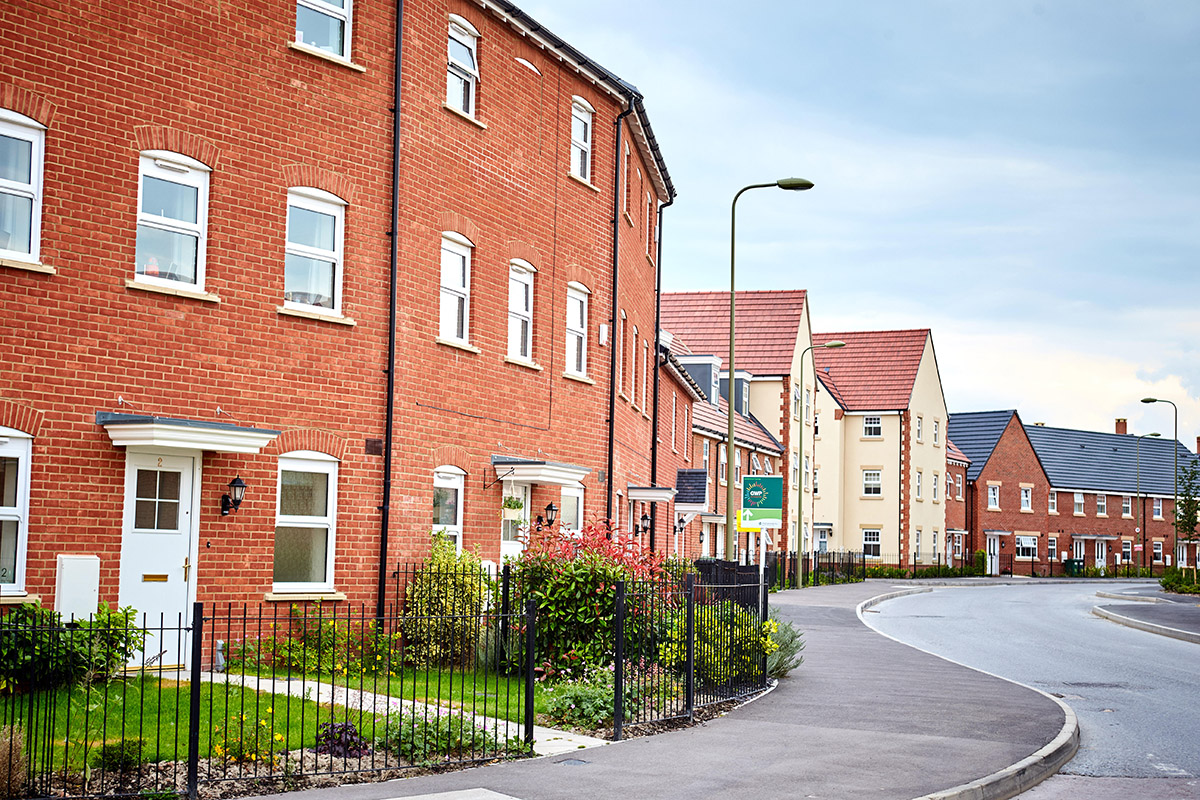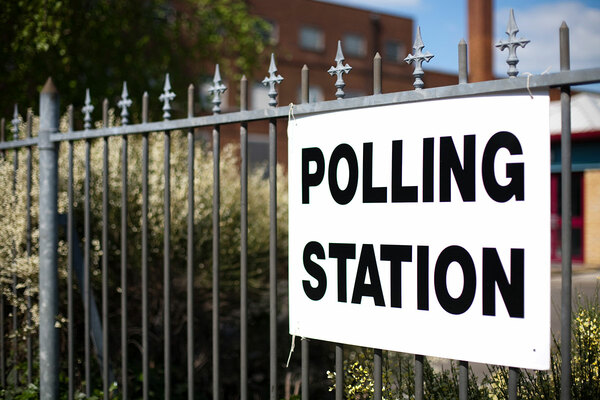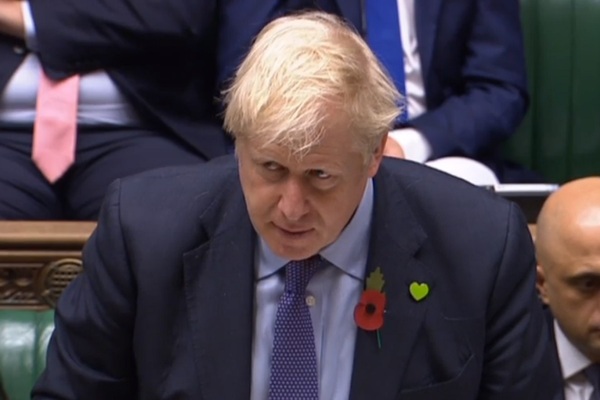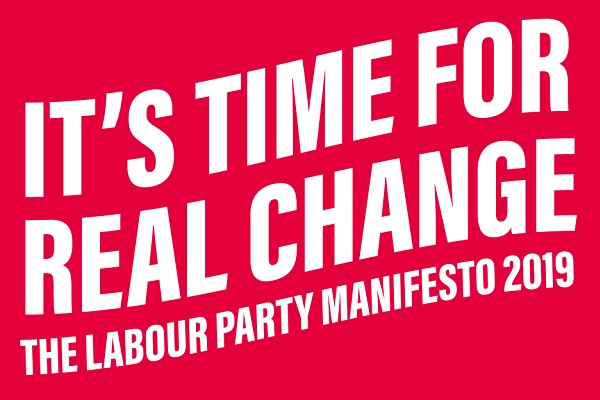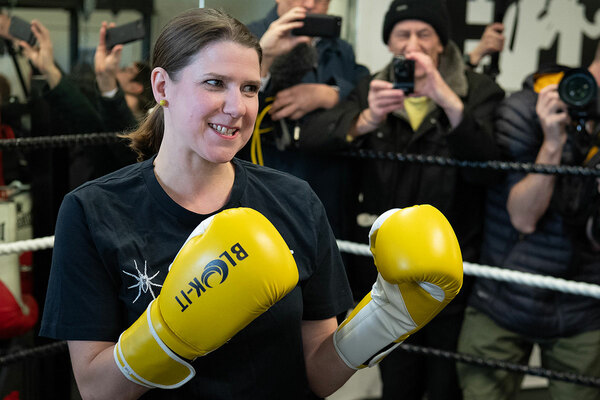 Jules Birch
Jules Birch#HousingHustings revealed differences between the Conservatives and the other parties
Jules Birch gives his take on last night’s #HousingHustings
 Jules Birch
Jules BirchThe most illuminating answer in Wednesday night’s #HousingHustings event (see video below) came with the final question.
Politicians at the event organised by a coalition of different housing organisations were asked: “How much of your income do you think it’s reasonable and right to spend on housing?”
They were asked for a quick-fire answer to an affordability question that covers a lot of complicated issues. What counts as income and what counts as housing costs? Do you include housing benefit? Do you account for differences in incomes and tenures?
The standard answer is “a maximum of a third” – which given by John Healey for Labour, Sian Berry for the Green Party and Tom Brake (who said 30%) for the Liberal Democrats.
But junior housing minister Luke Hall went first and went out on a limb with 50%.
That was a sign perhaps of his inexperience (an MP since 2015 and only a minister since July), but it also seems to speak to the big difference between the Conservatives and the other parties on housing.
No wonder the Conservatives have spent the past decade routinely conflating the figures for affordable and social housing, while boasting about the former and building next to none of the latter.
And no wonder they can claim that affordable rents of up to 80% of market rents really are affordable.
But how much that is reasonable to spend, and how affordable your housing is, is a reflection of how much you earn.
Those with higher incomes may choose to spend a greater proportion of their wages to get the sort of home they want, but those on low incomes may have no choice and on average spend a far greater proportion on their rent.
What’s reasonable also depends on whether you are talking about a mortgage, where costs may start high but will reduce over time, or a rent that will carry on going up.
“Those with higher incomes may choose to spend a greater proportion of their wages to get the sort of home they want, but those on low incomes may have no choice and on average spend a far greater proportion on their rent”
At lower incomes it also depends, crucially, on how much support you get from housing benefit and Local Housing Allowance (LHA). All the cuts of the past decade have ensured that they cover an ever smaller proportion of the rent.
On that, at least, Mr Hall had a bit of good news, as he confirmed that the Conservatives would end the LHA freeze in particular, as opposed to the end to the benefit freeze in general promised in their manifesto.
He also confirmed that the Conservatives’ new target of ending rough sleeping is by 2024 – three years earlier than before.
Otherwise he seemed to have little new to offer and also appeared to confirm that the party has downgraded their ambitions on new homes to “at least a million in the next parliament”, an annual rate 20% below than achieved last year and 50% below their previous ambition of 300,000 a year by the mid-2020s.
Mr Healey made the case for Labour having the best programme. “If we could get to 150,000 council houses a year within three years of the end of the war, we can certainly to it by the end of a five-year parliament,” he said.
In answer to the first question from a woman living in temporary accommodation in London, he pointed out that if the coalition and Conservative governments had maintained the social rent programme at the level of 2010 (when he was housing minister), there would now be 180,000 more genuinely affordable homes – enough to house all the families currently in temporary accommodation as well as tackling rough sleeping and wider homelessness.
Mr Brake made the case for the Liberal Democrats’ target of 100,000 social rent homes a year as being financially deliverable. He also referenced the Resolution Foundation’s verdict that the party has the most progressive policies on benefits.
Ms Berry hailed the Greens Party’s role in shifting the housing agenda of the other parties, not least on regeneration in London, and made a passionate case for an alternative, community-led approach to development.
She also highlighted the disparity between the £100bn a year the party would spend on retrofitting existing homes with Labour’s £40bn, the Liberal Demsocrats’ £10bn and what seemed to be nothing from the Conservatives.
Mr Hall did his best without much to work with and the fact that the Conservatives had sent a much more junior representative than the other parties underlined the fact that they see few votes in housing.
In answer to an architect’s question about what the parties would do to tackle fire safety, Mr Hall was reduced to repeating the familiar soundbites about £600m of support for the removal of aluminium composite material (ACM).
“The fact that the Conservatives had sent a much more junior representative than the other parties underlined the fact that they see few votes in housing”
Mr Healey said this was only “the tip of the iceberg” and highlighted there are ACM blocks still to be tackled, other forms of combustible cladding still to be addressed and the legislation that still has not been passed. He repeated Labour’s manifesto promise of a £1bn fire safety fund.
You can watch the full debate (above) to get more on the politicians’ answers to all of the questions and much more besides.
The hustings showed why the one housing question in mainstream Question Time events never gets answered properly – it’s all too easy for the politicians to avoid being pinned down – but even in 90 minutes there were some important subjects like renters’ rights that did not get covered.
Full credit should go to the organisers both for the event itself and for streaming it to a wider audience on the internet.
Jules Birch, award-winning blogger
General election 2019: Conservative housing pledges
- To build at least a million homes over the next five years
- To extend the housing association Right to Buy pilot currently being run in the Midlands to other areas
- To renew the Affordable Homes Programme in the Spring Statement
- New “First Homes”, which will be sold at a 30% discount to first-time buyers – apparently modelled on David Cameron’s Starter Homes pledge from 2015
- Continue the roll-out of Universal Credit, but "do more make sure that it works for the most vulnerable"
- To ensure infrastructure, such as GPs and schools, is provided before new housing is built
- To give local communities the power to write design standards
- A continued commitment to Theresa May’s promise to end ‘no-fault’ evictions
- A new market for “lifetime” fixed-rate mortgages, which will come with 5% deposits
- “Lifetime” deposits for the private rented sector, allowing renters to move the same deposit to a new tenancy when moving home
- A Social Housing White Paper, which was originally due in Spring 2019
- To simplify shared ownership by setting a single standard for all housing associations
- An “accelerated” green paper on planning, aimed at speeding up the planning process
- Reforming the Housing Infrastructure Fund to provide greater flexibility to Homes England
General election 2019: Labour housing pledges
- 150,000 new social homes a year within five years, 100,000 of which are to be built by councils
- A review on reducing council housing debt
- Powers and funding for councils to buy back homes from private landlords
- Ending of the Right to Buy
- £1bn a year for council homelessness services and extra shelters
- 8,000 homes for people with a history of rough sleeping, with a pledge to end rough sleeping in five years
- A “use it or lose it” land tax for developers of stalled housing schemes
- Confirmation of the promise to scrap Universal Credit as well as the bedroom tax and benefit cap, while increasing Local Housing Allowance rates
- A ban on leasehold ownership
- A zero-carbon standard for all new homes
- Resident ballots on regeneration schemes
- A new Decent Homes Programme
- Help to Buy reforms and new discount homes with prices linked to local incomes
- Scrapping of permitted development rights for office-to-residential schemes
- £1bn of fire safety funding, with building standards regulated by fire services
- A new English Sovereign Land Trust
- Scrapping of the existing definition of “affordable” housing, to be replaced with a term linked to local incomes
- Ending of the “forced conversion” of social rent homes to affordable rent
- Open-ended private tenancies and capping of rents at inflation, with cities given powers for further rent controls
- Nationwide private landlord licensing and new renters’ unions
- End of rules requiring landlords to check tenants’ immigration status and allowing them to exclude people on housing benefit
- New council powers to regulate short-term lets
- A holiday homes levy to raise money for homelessness services
- A levy on overseas companies buying housing with local people given first refusal
- Repeal of the Vagrancy Act
- A review of planning guidance for developments in flood risk areas
General election 2019: Liberal Democrat pledges
Picture: Getty
- Build 300,000 homes per year, of which 100,000 would be for social rent
- Cut energy bills, end fuel poverty by 2025 and reduce emissions from buildings by providing free retrofits for low-income homes, piloting a new energy-saving homes scheme, graduating stamp duty land tax by the energy rating of the property and reducing VAT on home insulation.
- Devolve full control of Right to Buy to local councils.
- Urgently publish a cross-Whitehall plan to end all forms of homelessness.
- Legislate for longer-term tenancies and limits on annual rent increases.
- Allow local authorities to increase council tax by up to 500% where homes are being bought as second homes, with a stamp duty surcharge on overseas residents purchasing such properties.
- Help young people into the private rental market by establishing a new Help to Rent scheme to provide government -backed tenancy deposit loans for all first-time renters under 30.

